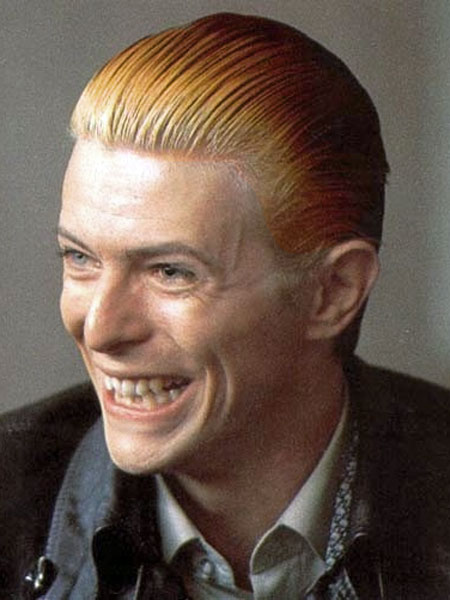 As I spent last weekend listening to the latest album by David Bowie, “Blackstar” or as it’s stylized,★, I realized how clearly dark it really was. The themes of death and depression, darkness and letting go that carried on throughout the album could been caused by anything. Then the world let out a collective “Ah shit,” when they learned Bowie died on Sunday at 69 years old. The media began making connections between the album release, his 69th birthday and his death. Of course now it is really all up to interpretation.
As I spent last weekend listening to the latest album by David Bowie, “Blackstar” or as it’s stylized,★, I realized how clearly dark it really was. The themes of death and depression, darkness and letting go that carried on throughout the album could been caused by anything. Then the world let out a collective “Ah shit,” when they learned Bowie died on Sunday at 69 years old. The media began making connections between the album release, his 69th birthday and his death. Of course now it is really all up to interpretation.
David Bowie was a bright being shining in our atmosphere. His made this most of his life and changed the direction of not only music, but pop culture, film and Broadway. Most are familiar with “The Rise and Fall of Ziggy Stardust and the Spiders from Mars,” and one of his more popularly outrageous stage personas. He blazed a glorious path, seemingly unafraid while in the spotlight while later he would reveal that his music was often fueled by darkness.
His imprint on music goes beyond some of his top hits like “Space Oddity,” “Rebel, Rebel,” “Changes,” “Life on Mars,” and “Heroes,” we can’t forget his credits as writer and producer on “Under Pressure” with Queen and “All the Young Dudes,” with Mott the Hoople.
“Look up here, I’m in heaven. I’ve got scars that can’t be seen,” David Bowie sings on “Lazarus.” Bowie, having an opportunity to give the universe a parting gift, exploded brilliantly with “Blackstar” which happened to released on his 69th birthday Friday, Jan. 8. Although he could be accused of having mysterious lyrics, he sings, “I’m dying,” on “Dollar Days.” According to producer Tony Visconti, “Backstar” was deliberately crafted for his fans.
As he did throughout his life, Bowie bravely thrust his art into the world, even his final project. His 26th album wasn’t safe in any way and isn’t just seeped in jazz and experimental rock, but his dives into the avant-garde truly like a man with nothing to lose. The value of those final moments spent on “Blackstar” were carefully planned and even as his final shot, Bowie stayed consistently valiant.
“Blackstar” stays current and lives as a product of current David Bowie as he was recording, not looking back on a successful career. Bowie always seemed to manage the courage to do the things that he wanted to do, regardless of the consequences. On “Blackstar,” Bowie isn’t trying to appease anyone or put together one last album of hits; this not a bucket list album.
Even as Bowie foresaw his inevitable destruction, his energy seemed to overtake the man. It became more powerful than the being and no longer able to be contained finally expanded, like a supernova, exposing its core in one final burst of light before fading into the darkness of the galaxy. But, instead of just bursting into nothingness, Bowie’s explosion was brief, only two days after the release of “Blackstar,” when the energy collapsed upon itself into a black hole.
At a little more than 40 minutes in length, “Blackstar,” is not just a fond farewell, but also one final bottle with lightning cast onto Earth to enlighten its people and inspire generations to come.


